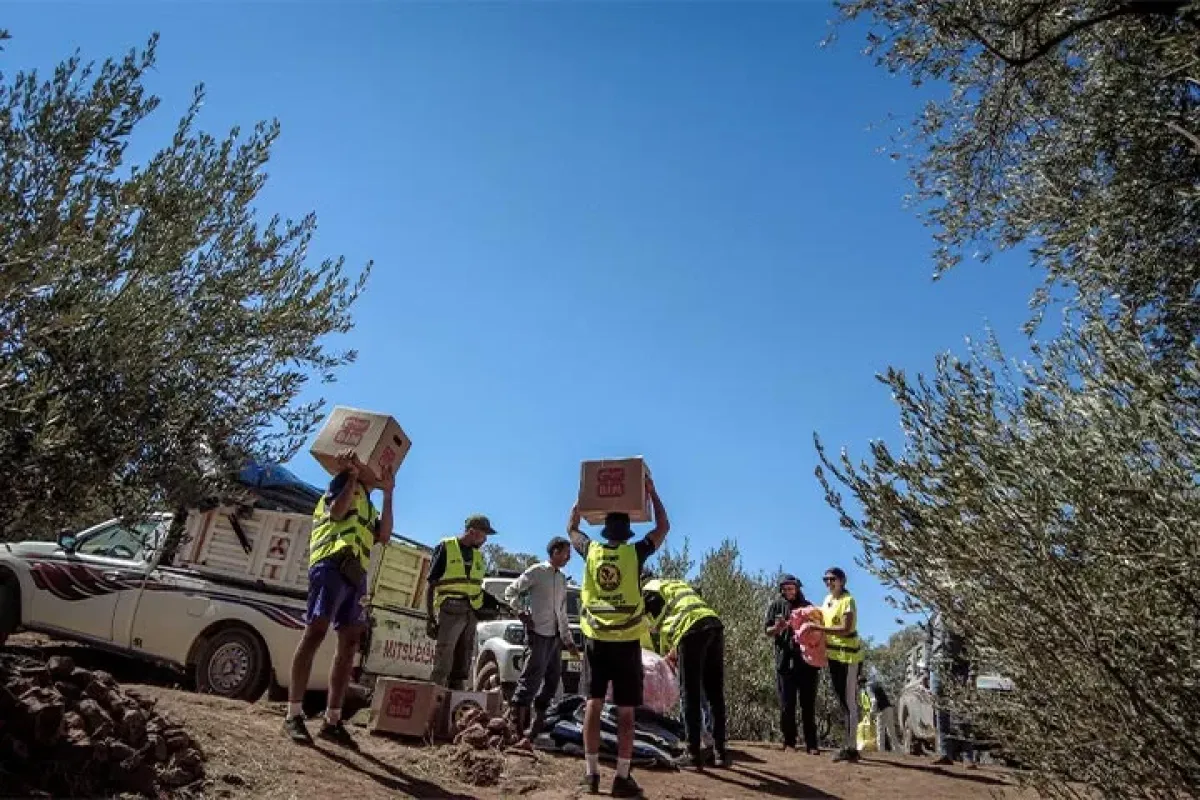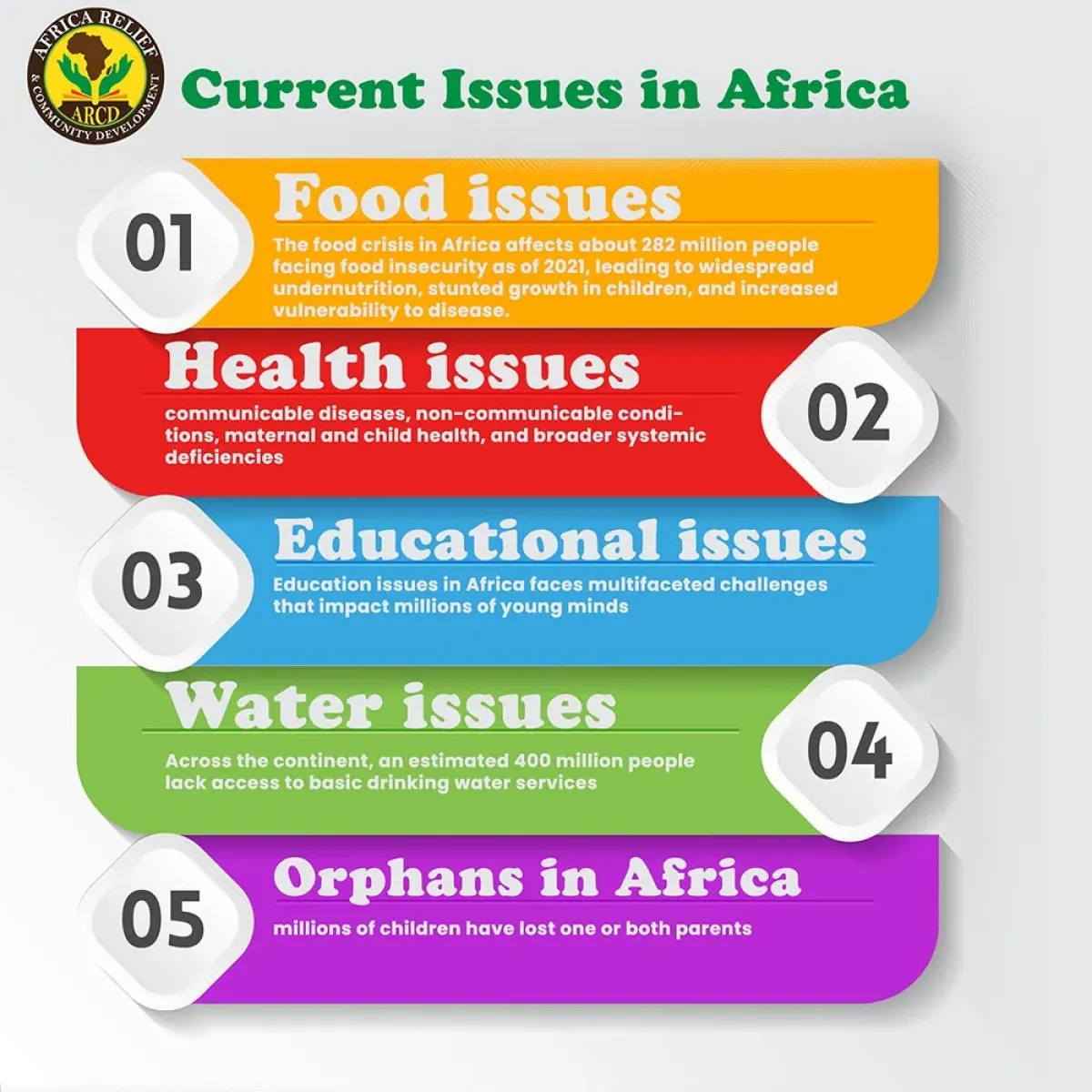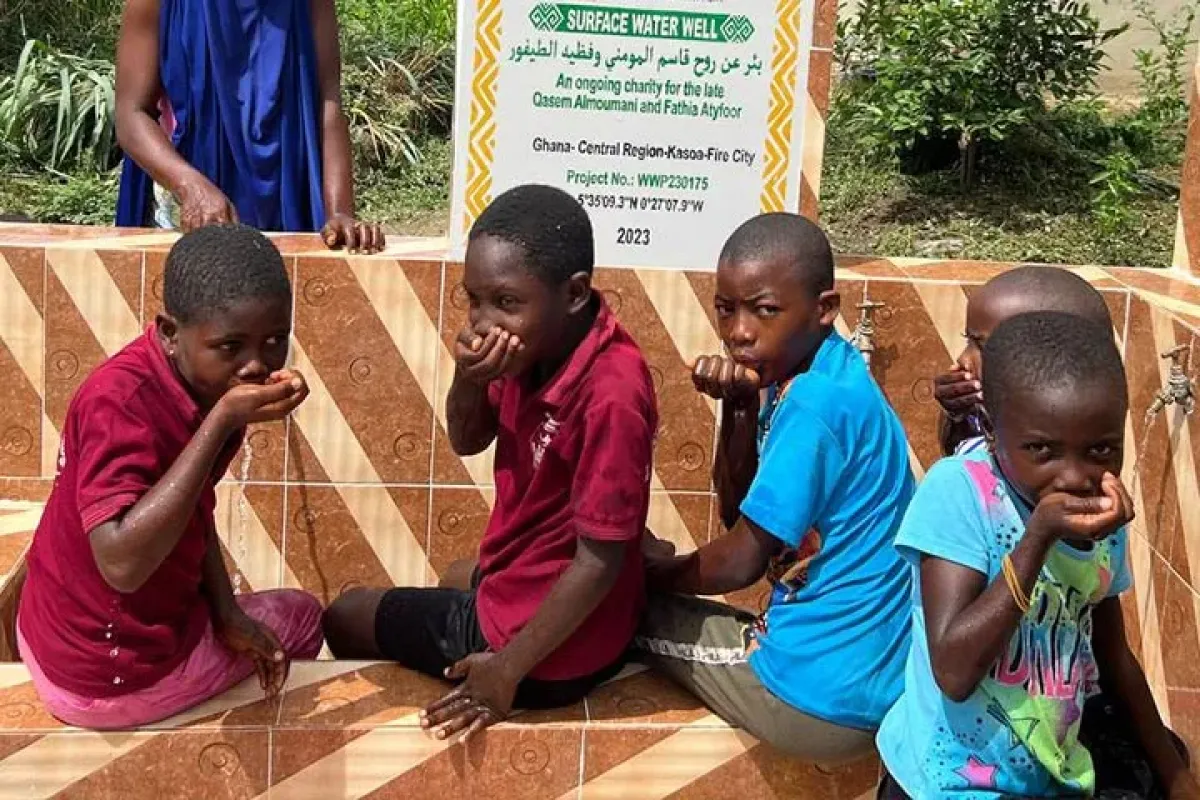Africa, the second largest and second-most populous continent, is a dynamic and diverse region facing a complex array of challenges and opportunities in the 21st century.
Issues such as poverty, inequality, healthcare access, education gaps, and the impacts of climate change have far-reaching consequences that reverberate throughout the region and the world.
In this intricate landscape, charity plays a pivotal role, offering critical support to bridge gaps in essential services, drive educational initiatives, enhance healthcare access, and foster sustainable development.

Charitable organizations, through their targeted interventions and partnerships with local communities, can significantly alleviate suffering and empower individuals, thus contributing to the continent’s journey towards progress and prosperity.
This article will delve into the obstacles that must be overcome and the promising avenues for progress and prosperity, and how charitable efforts are making a tangible difference.
Issues and problems in Africa

Africa faces numerous challenges that impact its development and well-being. Key issues include widespread poverty, significant income inequality, limited access to quality healthcare, and gaps in education. Additionally, the continent grapples with the severe effects of climate change, such as droughts and floods, which threaten food security and livelihoods. Addressing these problems requires concerted efforts and innovative solutions to ensure a brighter future for all its inhabitants.
By understanding the depth of these problems, we can better appreciate the importance of donating to Africa through Africa Relief to support initiatives that bring hope and tangible change to those in need.
Your contribution can make a significant difference in addressing these critical issues and improving lives across the continent.
In the next paragraphs we will discuss some types of Africa issues.
Food issues in Africa
At the heart of the food crisis in Africa lies the challenge of food insecurity, which affects an estimated 282 million people across the continent as of 2021.
This widespread lack of reliable access to sufficient, nutritious food has far-reaching consequences, contributing to high rates of undernutrition, stunted growth in children, and increased vulnerability to disease.
Some of the key drivers of food insecurity in Africa include:
- Climate Change Impacts: Africa is disproportionately affected by the adverse effects of climate change, such as prolonged droughts, shifting rainfall patterns, and extreme weather events. These climate-related stresses wreak havoc on agricultural productivity, leading to poor crop yields and livestock losses.
- Conflict and Displacement: Armed conflicts in regions like the Sahel, Horn of Africa, and Central Africa have displaced millions of people, disrupting food production and distribution systems. Displaced populations often lack access to arable land and are forced to rely on humanitarian aid.
- Poverty and Inequality: Widespread poverty, exacerbated by economic inequalities, limits many Africans’ ability to afford or access nutritious foods. Low incomes, lack of economic opportunities, and inadequate social safety nets contribute to high rates of food insecurity.
- Agricultural Challenges: Underinvestment in agricultural infrastructure, limited access to modern farming technologies, and unsustainable practices have hindered the continent’s ability to boost food production and meet the needs of a rapidly growing population.
To address these complex food issues in Africa, a multi-pronged approach is required. This includes investing in climate-smart agriculture, strengthening social protection programs, improving supply chain logistics, and empowering smallholder farmers.
Organizations like Africa Relief are working tirelessly to provide immediate food assistance while also supporting long-term solutions. Your support through initiatives like “food aid” can make a tangible difference in the lives of vulnerable communities.
Health issues in Africa
The health landscape in Africa is characterized by a complex web of challenges that continue to undermine the well-being of millions across the continent.
Issues in Africa related to healthcare span communicable diseases, non-communicable conditions, maternal and child health, and broader systemic deficiencies in medical infrastructure and service delivery.
- Communicable Diseases: Africa bears a disproportionate burden of infectious diseases, with malaria, HIV/AIDS, tuberculosis, and neglected tropical diseases claiming countless lives each year. These preventable and treatable conditions persist due to limited access to diagnostic tools, essential medicines, and comprehensive prevention and treatment programs.
- Non-Communicable Diseases: As Africa undergoes a demographic and epidemiological transition, the prevalence of non-communicable diseases (NCDs) such as cardiovascular diseases, diabetes, cancer, and chronic respiratory illnesses is on the rise. The lack of early detection, inadequate healthcare services, and poor health literacy contribute to the growing NCD crisis.
- Maternal and Child Health: High maternal and child mortality rates in many African countries reflect the stark inequities in access to quality reproductive, maternal, newborn, and child healthcare services. Factors like limited skilled birth attendance, inadequate prenatal and postnatal care, and poor nutrition compound these challenges.
- Healthcare System Deficiencies: Africa’s health systems face chronic shortages of medical facilities, equipment, and trained personnel, especially in rural and marginalized communities. Insufficient health financing, weak governance, and logistical barriers impede the delivery of essential healthcare services to those most in need.
- Cataract Surgery: Vision impairment due to cataracts is a significant health issue in Africa. Many people suffer unnecessarily due to limited access to affordable and effective cataract surgery. Improving the availability of surgical interventions and post-operative care can dramatically enhance the quality of life for those affected.
- Hearing Aid Devices: Hearing loss is a prevalent yet often overlooked issue in Africa. Access to hearing aid devices and related services is scarce, leaving many individuals without the necessary support. Expanding the availability of hearing aids and ensuring proper fitting and maintenance can greatly improve communication abilities and overall well-being for those with hearing impairments.
Donate to healthcare charities in Africa to support initiatives that tackle these pressing health issues head-on. By doing so, you become part of a collective effort to improve lives and build resilient health systems across the continent.
Educational issues in Africa
Education issues in Africa faces multifaceted challenges that impact millions of young minds. Despite commendable progress over the past decade, significant disparities persist. Let’s delve into some critical issues:
- Access and Enrollment: While strides have been made in increasing access to education, a substantial number of African children remain out of school. Factors such as poverty, gender inequality, and inadequate infrastructure hinder enrollment rates.
- Quality of Education: The quality of education varies widely across the continent. Many schools lack qualified teachers, proper learning materials, and conducive environments. As a result, students often struggle to acquire essential literacy and numeracy skills.
- Equity and Inclusion: Disparities persist, particularly affecting marginalized groups. Girls, children with disabilities, and those from rural areas face additional barriers. Ensuring equitable access to quality education is crucial for sustainable development.
- Teacher Training and Retention: Investing in teacher training and professional development is essential. Well-prepared educators can inspire students, foster critical thinking, and drive positive change.
- Digital Divide: The digital divide exacerbates educational inequalities. Access to technology and internet connectivity remains limited in many regions, hindering e-learning opportunities.
Organizations like Africa Relief play a vital role in addressing these challenges. Consider supporting initiatives like the Global Partnership for Education, which focuses on gender equality, teaching quality, and crisis response.
You can play a vital role in supporting educational development by contributing to charities for African education that are working to expand access to schooling, improve learning outcomes, and empower the next generation of African leaders.
Water issues in Africa

Access to clean, safe water is a fundamental human right, yet millions of Africans continue to face acute water scarcity and a severe lack of reliable water infrastructure.
Issues in Africa related to water span a range of challenges, from the depletion of groundwater sources and contamination of surface water to the disproportionate impact of droughts and climate change on water availability. Across the continent, an estimated 400 million people lack access to basic drinking water services, forcing them to rely on unsafe, untreated water sources that contribute to the spread of waterborne illnesses like cholera, dysentery, and typhoid.
The water crisis in Africa also has far-reaching consequences for agriculture, sanitation, and overall community health and development.
Addressing these complex water issues will require comprehensive, multi-stakeholder efforts to invest in water infrastructure, improve water resource management, and promote sustainable water use.
You can make a meaningful impact by Donate to water wells and supporting organizations that are working to bring clean, reliable water to communities in need across Africa.
Orphans in Africa
Orphans in Africa face some of the most challenging circumstances among vulnerable populations on the continent.
Due to a variety of factors, including disease, conflict, and poverty, millions of children have lost one or both parents.
These orphans often lack access to basic necessities such as food, shelter, education, and healthcare, making their situation even more dire.
The issues in Africa, such as economic instability and inadequate social services, further exacerbate the plight of these children.
Orphan Sponsorship programs are crucial in addressing these challenges. By providing financial support, education, and emotional care, these programs help ensure that orphans can lead healthier, more stable lives.
Supporting Orphan Sponsorship initiatives through Africa Relief can make a significant difference, offering hope and a brighter future to countless children in need.
